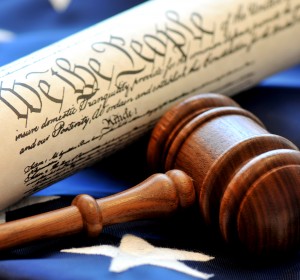By Ryan C. Wood
There are a number of requirements to discharge taxes when filing for bankruptcy protection. Timing is everything. Taxes can be discharged if they taxes are three years old, filed on time or 2 years before the bankruptcy case was filed, assessed 240 days prior to the bankruptcy case, non-fraudulent return and no willful tax evasion. This article will not address the numerous issues that can arise regarding each of the requirements listed. This article focuses on what events can stop the clock or start the tolling of the different time periods. Your bankruptcy lawyer in your jurisdiction will be able to discuss how your state taxes are dealt with in bankruptcy.
For example, the due date for 2009 taxes is April 15, 2010. In theory taxes owed for 2009 therefore will be dischargeable after April 15, 2013, when filing for bankruptcy protection. So stops the clock on the three year period though? Or what stops the clock for the filed on time or return filed at least two years before filing for bankruptcy?
Bankruptcy Code Section 507(a)(8)(G) provides in part . . . . “applicable time period specified in this paragraph shall be suspended for any period during which a governmental unit is prohibited under applicable nonbankruptcy law from collecting a tax as a result of a request by the debtor for a hearing and an appeal of any collection action taken or proposed against the debtor, plus 90 days; plus any time during which the stay of proceedings was in effect in a prior case under this title or during which collection was precluded by the existence of 1 or more confirmed plans under this title, plus 90 days.
Events that Toll or Stop the Clock From Running
1. Filing Bankruptcy: The first event is the filing of a prior bankruptcy case. As soon as the bankruptcy case is filed the automatic stay is in effect stopping any and all collection activity, including collection of taxes. The time period of three years and 240 days is not stopped since the governmental agency is prevented from attempting to collect the taxes. However long the automatic stay was in effect should be subtracted from the total days. Bankruptcy Code Section 507(a)(8)(G) also adds 90 days to the time period.
2. Request for a Hearing: Once you receive a letter in the mail from the IRS or FTB that you allegedly have unpaid taxes you may request a hearing to object or challenge the taxing authorities findings. Once you make this request the time period for looking back to determine if the taxes are dischargeable is tolled or stops. In addition once the event is over the time starts to run again 90 days must be added to the time period.
3. Appeal of Any Collection Action: This is more or less the same as making a request for a hearing. If the IRS or FTB levied on your bank accounts or informs you of a proposed assessment and you appeal the collection action or assessment the time period looking back is again stopped or tolled.
4. Offers In Compromise: If you make an offer in compromise it will stop the 240 day period while the offer is pending or in effect, plus 30 days. See Bankruptcy Code Section 507(a)(8)(A)(ii)(I). The trap here is if you had an offer-in-compromise in effect previously but no longer. The time the OIC was in effect must be calculated and added to the 240 day time period. Also, it only tolls the 240 day period with the taxing authority the offer was made to.
5. Extension to File Return: The Internal Revenue Service requires a form be filled out to obtain an extension of the deadline to file a tax return. Some states, like California, will automatically extend the deadline to file a return if not filed on time. This is an issue that needs to be looked at closely. Do not assume the federal tax time periods and deadlines are the same for whatever state taxes are owed as well.
The good news is that entering into an installment agreement with the Internal Revenue Service or Franchise Tax Board does not toll or stop the time periods. This is our recommendation also. If all else fails then enter into an installment agreement as soon as possible. Ignoring the taxing authority will only make matters worse. You do not want the government levying on your bank accounts, garnishing your wages or issuing tax liens on your real and personal property.



